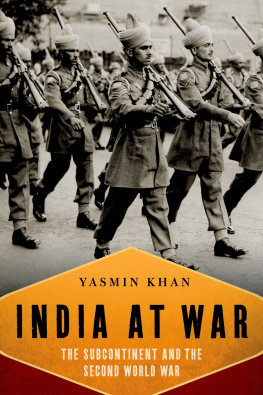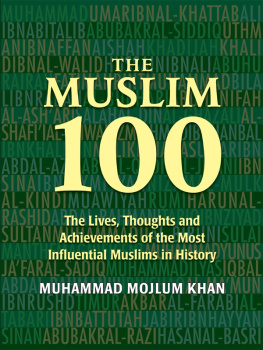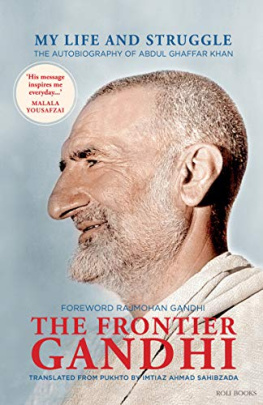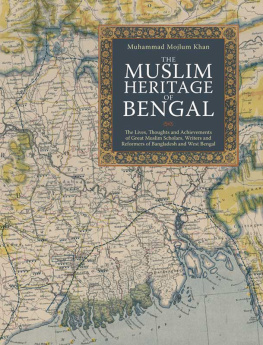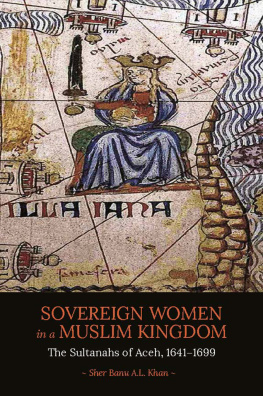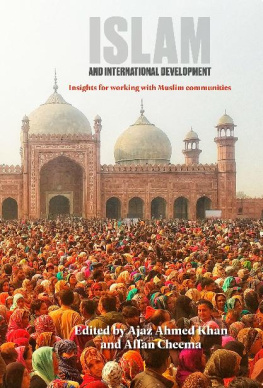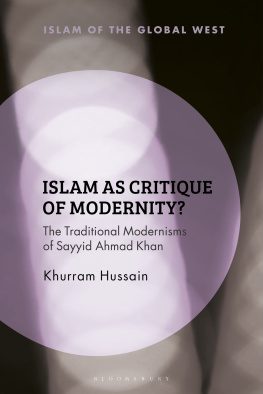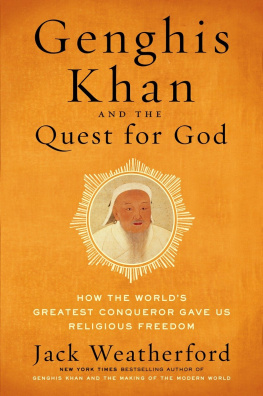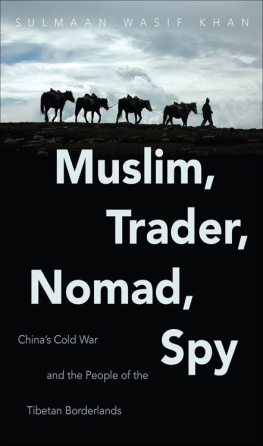Khan - The long struggle the Muslim worlds Western problem
Here you can read online Khan - The long struggle the Muslim worlds Western problem full text of the book (entire story) in english for free. Download pdf and epub, get meaning, cover and reviews about this ebook. City: Islamic countries;Western countries;Ropley, year: 2010, publisher: O-Books;Zero books, genre: History. Description of the work, (preface) as well as reviews are available. Best literature library LitArk.com created for fans of good reading and offers a wide selection of genres:
Romance novel
Science fiction
Adventure
Detective
Science
History
Home and family
Prose
Art
Politics
Computer
Non-fiction
Religion
Business
Children
Humor
Choose a favorite category and find really read worthwhile books. Enjoy immersion in the world of imagination, feel the emotions of the characters or learn something new for yourself, make an fascinating discovery.

The long struggle the Muslim worlds Western problem: summary, description and annotation
We offer to read an annotation, description, summary or preface (depends on what the author of the book "The long struggle the Muslim worlds Western problem" wrote himself). If you haven't found the necessary information about the book — write in the comments, we will try to find it.
The long struggle the Muslim worlds Western problem — read online for free the complete book (whole text) full work
Below is the text of the book, divided by pages. System saving the place of the last page read, allows you to conveniently read the book "The long struggle the Muslim worlds Western problem" online for free, without having to search again every time where you left off. Put a bookmark, and you can go to the page where you finished reading at any time.
Font size:
Interval:
Bookmark:
The first Jihadi fighter I ever met had a serious crush on Lebanese singer Nancy Ajram. We were sitting in a caf in Cairo as George W. Bush and Tony Blair prepared to invade Iraq, and although Hisham was supposed to be telling me why he was ready to die in Iraq, he couldnt take his eyes off Nancy sashaying on the screen behind us as she breathily sang; Ill torment you, but I wont leave you.
After two years freelancing in the Middle East, I joined Reuters in Cairo in early 2003. America was preparing to lead its allies in an invasion of Iraq that the worlds Muslims thought was part of a Western grand plan to steal oil and protect Israel. In my first few weeks, I had proved absolutely useless at the basic Reuters skills of writing reports quickly and without factual or typographical errors. In an effort to prove to my boss that employing me really was a good idea, I decided to show her that although I might mix up prices and percentages on a stock market report, I could get a good story.
Id heard rumors that a steady stream of young Egyptians were travelling to Iraq to fight the invasion, but no one I knew could arrange a meeting. I spent day after day trying to charm activists from left-wing political parties and the banned Islamist Muslim Brotherhood. When I had run out of ideas, I found the men I was looking for literally on my doorstep. The Iraqi embassy was opposite my flat. I had seen an unusually large number of men outside it every day for weeks. It finally occurred to me that they might be trying to get to Iraq.
I walked towards a group of men standing outside the small darkened doors of the large white building newly adorned with pictures of Saddam Hussein, but stopped as I drew close. While I was standing on the kerb thinking of something to say, one of the younger men came over to me and said; Are you Iraqi?
I said that I wasnt, but didnt want to give away my British nationality in case the group decided not to like me on the spot. Instead, I resorted to my parents original nationality and said I was Pakistani.
So, you want to get to Iraq too, he guessed.
Before I could even begin to unravel the true nature of my suspicious loitering in front of the Iraqi embassy, a man emerged from the dark doors and ushered us all inside.
The small door opened up into a large white marble lobby. Another official in a dark suit and dark glasses sat in front of a bank of screens that showed CCTV footage of the front of the building from at least seven different angles. How can I help you? he asked.
The oldest of the group of would-be fighters, a man in his late 30s, spoke for us; We want to fight against the Americans, he said.
Well, you cant go directly from Egypt, the official replied.
I was surprised he didnt offer thanks and long-winded praise for their bravery, pan-Arab credentials and unshakeable Islamic faith as Iraqs foreign minister had done on television when asked about the support his country was receiving from ordinary Arabs.
The government here has blocked all but official travel to Iraq. Instead, you need to go to Syria. You can get there without a visa. And when you arrive, find the Iraqi embassy. Someone there will help you, he told us matter-of-factly.
The official then asked why the group wanted to fight in Iraq. Our unofficial group spokesman took a step forward. His Palestinian scarf announced his political credentials even before he spoke. The reason, he told the Iraqi official, was that they wanted to do what Arab leaders had not been able to do; they wanted to protect Arab pride and honor. The group murmured in agreement. The official then looked behind the older man, at the younger members of the group. Another, younger, man said he wanted to humiliate the Americans on the battlefield so they would leave the region. A third said his aim was to protect the wealth of Iraq so it could be used for the benefit of the Arab world. When it came to my turn, I admitted that I was a journalist and said I wanted to document what was to come.
As we left the embassy, the group crowded round me in curiosity. Our shared experience had at least earned me a hearing. They wanted to know who I worked for and what I wanted to write about. Although Reuters is British and therefore Western it has an enviable reputation in the Arab world for impartiality and accuracy. Even more helpfully, its seen as an important and influential organization.
Four of the group agreed to meet me later and tell me what had made them decide that Iraqs defense was worth risking their lives for.
Hisham looked as if he were the youngest in the group. He was about 18 years old. He told me hed just started studying engineering at one of Cairos state universities. I knew that even with top marks, as an ordinary young Egyptian job-seeker without the resources to bribe his way into a well-paid professional career, he would probably be driving a taxi if he stayed in Cairo. And thats if he was lucky.
Two years later, the Americans faced a brutal and vicious insurgency in Iraq. The blame, they said, lay not with the Iraqis they had come to liberate from Saddam but foreign fighters like Hisham and his friends. These highly capable and motivated men, the military said, streamed into Iraq from Syria.
Whenever I heard military officials later describe these men, I thought back to Hisham. With a pen sticking out of his top pocket and his thick glasses, he looked like a technician rather than a warrior. Hisham didnt even have a beard. Looking at him, I didnt think hed be able to grow one if he tried. The other members of his group looked like what they were; a motley collection of idealistic students, taxi drivers and low-level office workers. They all believed that they had an Islamic duty to defend Iraq, but none appeared particularly Islamic. Hisham knew much more about celebrity gossip than he did about Islamic regulations. Hatim, the oldest in the group, was a great admirer of the greatest leader of Arab socialism, Gamal Abdel Nasser. Another man called Khaled, a secondary school Arabic literature teacher, composed love poems in his spare time and told me he hated the fanatics who thought love and romance were dirty words.
Five years later, in the Gulf, a former Iraqi army officer told me what happened to most of the men like Khaled, Hatim and Hisham, Wed thank them, hand them a broken rifle, and then put them on the frontlines where they wanted to be. Most died in the first bombing waves.
The reasons they gave for their decision to travel far from home and fight a superpower were based on a jumble of deeply held grievances. Personal ones like the poverty of life in a corrupt dictatorship like Egypt mixed with collective grievances like the role of the United States in keeping Muslim countries poor so that they could not challenge its power.
At the same time, their reasoning was often contradictory. Hisham wanted to fight to keep Western influence out of the Arab world, but it was clear that influence was a big part of the culture he eagerly consumed. Khaled wanted to restore Islamic law, but at the same time he condemned the most zealous supporters of that system as ignorant thugs. Another member of the group spoke as if the Arab and Muslim worlds were the same thing. He didnt know that Indian and Indonesian Muslims far outnumbered Arabs, or that a large minority of Arabs werent actually Muslim. The whole group thought Al Qaeda had nothing to do with the attacks of September 11, 2001. But at the same time, they admired Osama bin Laden for taking on the United States.
We sat in the caf for several hours and talked about the state of the Arab world (which we referred to as if it by default included all other Muslim countries from Albania to Brunei). We talked about past glories and present failures, and settled on a familiar discussion revolving around who was to blame for the failure of the Arab (meaning Muslim) world to chart its own destiny instead of having the will of others imposed upon it.
Font size:
Interval:
Bookmark:
Similar books «The long struggle the Muslim worlds Western problem»
Look at similar books to The long struggle the Muslim worlds Western problem. We have selected literature similar in name and meaning in the hope of providing readers with more options to find new, interesting, not yet read works.
Discussion, reviews of the book The long struggle the Muslim worlds Western problem and just readers' own opinions. Leave your comments, write what you think about the work, its meaning or the main characters. Specify what exactly you liked and what you didn't like, and why you think so.


